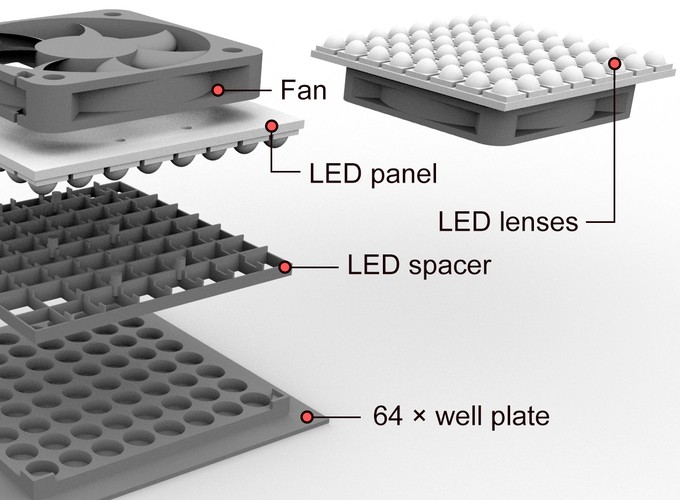An LED-based multi-actinic illumination system for the high throughput study of photosynthetic light responses
Abstract
The responses of photosynthetic organisms to light stress are of interest for both fundamental and applied research. Functional traits related to the photoinhibition, the light-induced loss of photosynthetic efficiency, are particularly interesting as this process is a key limiting factor of photosynthetic productivity in algae and plants. The quantitative characterization of light responses is often time-consuming and calls for cost-effective high throughput approaches that enable the fast screening of multiple samples. Here we present a novel illumination system based on the concept of ‘multi-actinic imaging’ of in vivo chlorophyll fluorescence. The system is based on the combination of an array of individually addressable low power RGBW LEDs and custom-designed well plates, allowing for the independent illumination of 64 samples through the digital manipulation of both exposure duration and light intensity. The illumination system is inexpensive and easily fabricated, based on open source electronics, off-the-shelf components, and 3D-printed parts, and is optimized for imaging of chlorophyll fluorescence. The high-throughput potential of the system is illustrated by assessing the functional diversity in light responses of marine macroalgal species, through the fast and simultaneous determination of kinetic parameters characterizing the response to light stress of multiple samples. Although the presented illumination system was primarily designed for the measurement of phenotypic traits related to photosynthetic activity and photoinhibition, it can be potentially used for a number of alternative applications, including the measurement of chloroplast phototaxis and action spectra, or as the basis for microphotobioreactors.
